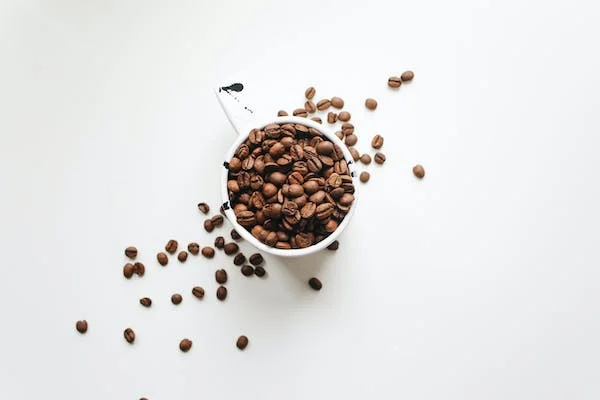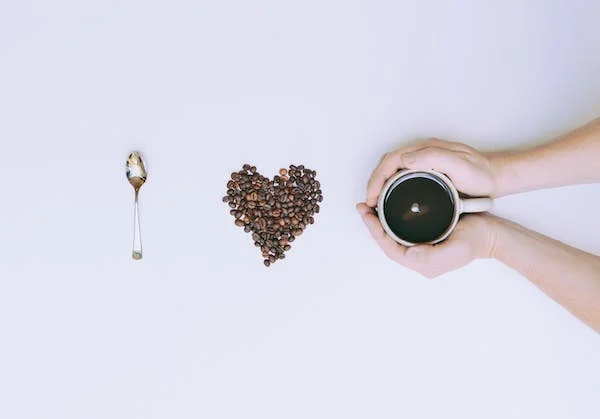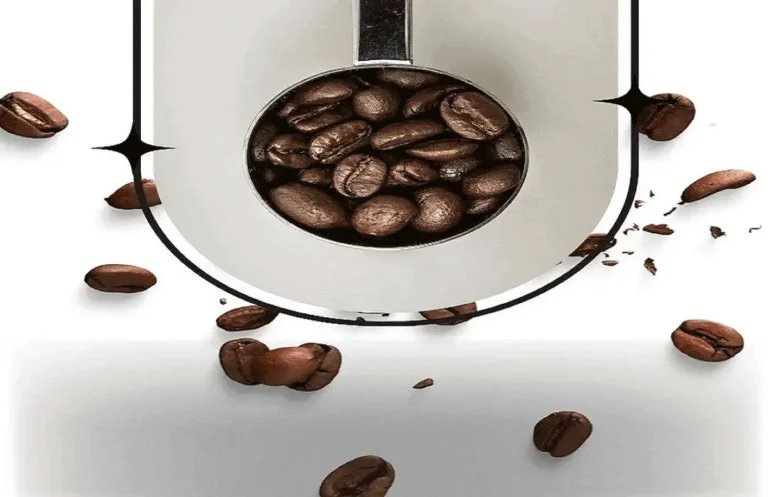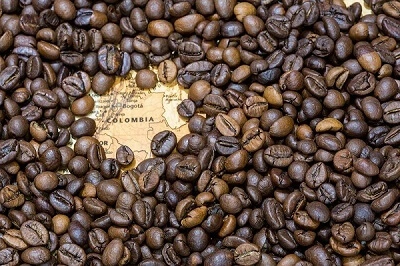Can you eat Coffee beans? Ultimate Guide with Pros and Cons

Have you ever thought about munching on a few coffee beans straight out of the bag? Well, it’s not as crazy as it sounds. In fact, many coffee aficionados claim that eating coffee beans enhances flavor and provides a burst of energy.
However, many people still ask question can we eat coffee beans? The simple answer is Yes, you can eat coffee beans.
Learn about the feasibility of eating coffee beans and the potential consequences of consuming them in large amounts. Find out why it’s better to enjoy coffee in a brewed form in this article.
But, before you reach for a handful, it’s important to note that not all beans are created equal. Unroasted, green coffee beans contain high levels of chlorogenic acid which can be toxic if consumed in large quantities.
What are coffee beans? these are the seeds found inside the berries of coffee plants. These seeds are dried, roasted, and ground to make the coffee that we enjoy drinking.
Eating Coffee beans is good for you?
Although it is not recommended to eat coffee beans for various reasons, as it contain caffeine, which can provide a quick energy boost, they are also quite bitter and hard to digest.
On the other hand, roasted coffee beans are safe to eat, but they may not have the same taste as the brewed coffee you’re used to. So, if you’re curious about trying this trend, go for it, but remember to enjoy it in moderation!
Moreover, you can eat Coffee beans as an alternative to traditional coffee drinks and it can also add an extra crunch to your day. Just keep in mind that they are quite strong and can have a bitter taste, so start eating coffee beans with a small amount and see how your taste buds respond to it.
Are coffee beans used as a food Product?
it is the seed of the coffee plant, scientifically known as coffee. They are usually roasted to bring out their natural flavor and aroma and then ground to make coffee.
While coffee beans are not typically considered a food product in the traditional sense, they are commonly used as a source of caffeine in beverages and sometimes as an ingredient in various foods and desserts.

Nutritional value of coffee beans:
A Research study in The American Journal of Psychiatry suggests that drinking coffee may have a protective effect against depression and may lower the risk of suicide.
Coffee contains several important nutrients, including vitamins B2, B3, and B1, manganese, and potassium, which can help to improve overall health. (Table, information gathered from Healthline.com)
Although coffee beans are not a significant source of essential nutrients. However, they do contain a small number of vitamins and minerals, including the following along with their nutritional values:
| Vitamins | Nutrient values |
|---|---|
| Vitamin B2 (riboflavin) | 0.1 milligrams (mg) per 100 grams |
| Vitamin B3 (niacin) | 0.8 mg per 100 grams |
| Vitamin B1 (thiamine) | 0.05 mg per 100 grams |
| Manganese | 2.3 mg per 100 grams |
| Potassium | 356 mg per 100 grams |
| Magnesium | 24 mg per 100 grams |
| Phosphorus | 36 mg per 100 grams |
It is important to note that these nutrient values are based on 100 grams of green, unroasted coffee beans. Roasting coffee beans can decrease their nutritional value and increase the levels of caffeine.
In addition, the actual amount of vitamins and minerals present in a cup of coffee will vary depending on the brewing method and the amount of coffee used.
Another study published by the Harvard Health Publishing site:
“Coffee contains high levels of antioxidants, which are compounds that help to protect cells from damage caused by free radicals.”
Coffee beans are rich in some nutrients and vitamins such as:
Caffeine: Beans contain caffeine, which acts as a natural stimulant and provides a quick energy boost.
Vitamin B: Beans are a good source of vitamins B2, B3, and B1, which are essential for maintaining good health.
Manganese: Coffee beans are a rich source of manganese, a mineral that is important for healthy bones, skin, and connective tissue.
Potassium: Coffee beans contain potassium, a mineral that helps to regulate fluid balance in the body and supports heart and muscle function.
Chlorogenic Acid: Coffee beans contain chlorogenic acid, a type of antioxidant that has been shown to have anti-inflammatory and weight-loss benefits.
Coffee beans also contain little amount of fiber and calories but the nutritional content can vary depending on the type of coffee and the processing method used.
Fiber in Coffee:
Fiber is an important nutrient that plays a key role in maintaining good health. While coffee is often associated with being a stimulant and providing a caffeine boost, it can also provide a small amount of fiber.
This is because coffee beans are made up of a fibrous outer layer that is often discarded during the roasting process. However, some specialty coffee blends include a fibrous layer, providing an additional source of fiber in the cup of coffee.
Calories in Coffee beans:
They contain very few calories, with approximately 2 calories per gram. This means that a serving size of 10 grams, or about 2 tablespoons, contains only about 20 calories.
It is important to note that the calorie content can vary based on the roast level, as darker roasts tend to contain slightly more calories than lighter roasts.
How to use coffee as a laxative?
Coffee can be used as a natural laxative by increasing the production of digestive juices and stimulating the muscles in the intestines. To use coffee as a laxative, it is recommended to consume a cup of strong, black coffee in the morning on an empty stomach.
Drinking coffee in this manner can help to soften the stools and increase the frequency of bowel movements, leading to a more regular and comfortable digestion process.
Overall, while coffee beans do contain a small number of vitamins and minerals, they are not considered a significant source of nutrition. However, they can still provide health benefits when consumed in moderate amounts as part of a balanced diet.
How many coffee beans can you eat?
The number of beans you can eat depends on several factors such as your age, weight, and tolerance to caffeine. It is not recommended to consume a large amount due to the risk of caffeine overdose.

A general guideline is to limit your daily caffeine intake to 400 milligrams or less, which is roughly the equivalent of four cups of brewed coffee.
Over eating coffee beans can easily exceed this amount and lead to adverse effects such as rapid heartbeat, jitters, and difficulty sleeping.
How to Consume Coffee Beans?
There are several ways to consume coffee beans, including:
Eating coffee beans can provide a quick energy boost and offer various health benefits, but it is important to consume them in moderation and a safe manner.
- Eating coffee beans as raw.
- Roasted and ground: The most common way to consume coffee is by brewing roasted and ground beans. The ground beans are mixed with hot water to create a drink.
- Drinking coffee made from ground coffee beans.
- Whole beans: Some people like to chew or eat coffee beans whole as a source of caffeine.
- Coffee Bean Snacks: Some companies make coffee-flavored snacks made from whole beans that can be eaten like nuts.
- Coffee Bean Energy Bites: There are also energy bites made with beans that can be consumed as a snack.
- Adding coffee beans to food and drinks.
Can you eat coffee cherries?
Yes, coffee cherries can be eaten. They are the fruit of the coffee plant and contain the beans that are used to make coffee.
Coffee cherries are not commonly consumed in their raw form, as they are typically sour and bitter, but they can be processed to make coffee or used for other purposes such as making tea or producing coffee syrup. You can check our list of best coffee syrups as well.
Pros and cons of eating coffee beans
Pros:
There are many potential benefits of eating coffee beans that are mentioned above in the article such as:
Reason to Choose
A study in a Psychological Science journal reveals that
“Caffeine, the main active component in coffee, has been shown to increase alertness and improve mental performance.”
Cons:
Eating too many beans has many side effects such as;
Reasons to Avoid
Can your dog eat coffee beans?
Caffeine is toxic to dogs and even small amounts of coffee beans can be dangerous. Symptoms of caffeine toxicity in dogs can include restlessness, rapid breathing, muscle tremors, increased heart rate, and seizures. In severe cases, it can lead to death.
If you suspect your dog has consumed coffee beans, it is important to seek veterinary treatment immediately. Your vet may induce vomiting, give activated charcoal to absorb the caffeine, or provide supportive care such as IV fluids to prevent dehydration.
Conclusion
There are various health benefits of consuming coffee beans in moderate amounts, such as improved overall health, reduced risk of certain diseases, protection against cellular damage, and improved mental performance.
However, it is important to remember that excessive consumption can have negative effects and it is best to enjoy them in a brewed form as a beverage.
It is recommended to enjoy coffee beans in a brewed form as a beverage to avoid the potential downsides and enjoy the full flavor and aroma of the coffee.




